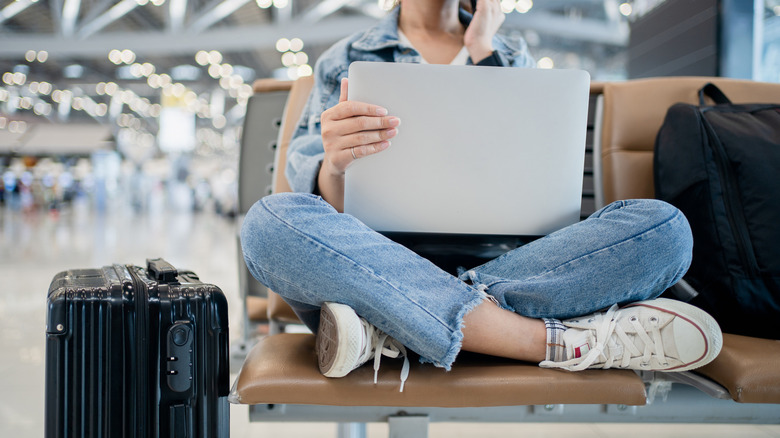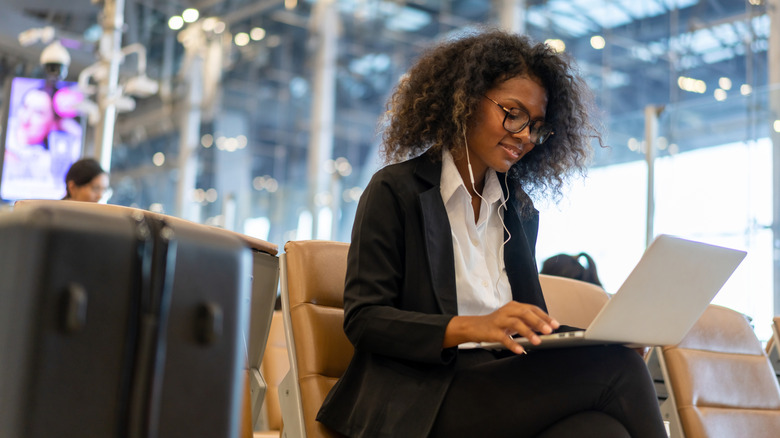The Alarming Reason You Should Avoid Logging Into Accounts On Airport Wi-Fi
Getting free Wi-Fi sounds like a dream. That's particularly true at the airport, when you're told to be there two hours before a domestic flight and three hours before an international one. If you make it through security quickly, you're likely going to be sitting at your gate or in a restaurant for a very long time. It's the perfect window to do some work, banking, or online shopping, because, after all, what else are you going to do with your time? Stop right there. If you use airport Wi-Fi, you may be putting your sensitive data in the hands of hackers.
According to a 2024 Forbes survey of 2,000 people, 40% of them have had their information compromised on public Wi-Fi. Despite that, people still do it. The same report said that 20% of respondents use public Wi-Fi to check personal data like their finances. Even worse is the fact that the FBI's annual internet crime report says that about $16 billion was lost in 2024, with personal data breaches in the top three reasons. It's enough to make you want to go to that almost-empty bookstore in the airport and actually read a ... gasp ... real book instead of doom scrolling.
You can even lose your information if you simply choose to charge your phone in a public USB port, which can track your information, text messages, contact lists, and more. Called "juice jacking," the FBI also warns against charging your phone in an airport for this reason.
How to protect your data while using the internet at the airport and other public places
That isn't the only way they can get you, either. There are sometimes fake Wi-Fi networks — called "honeypot networks" — that look legit but aren't and can steal your data. However, there are ways you can keep yourself and your sensitive data safe. First, if you do need to use the free Wi-Fi at the airport for something like looking up a fact, checking the weather report, or anything that doesn't involve data input, ask someone who works at the airport for the correct Wi-Fi link to avoid a honeypot network. Next, whether you're using it at the airport, in a café, or on a cruise, you should use a VPN, which is a virtual private network that can protect your data and your location. In fact, VPNs are a sneaky trick that people use to work at a vacation location without getting caught.
While it's best to do anything that requires a login, like work, banking, or shopping, before you ever leave for the airport, sometimes it can't be helped, despite the fact that the TSA says not to use public Wi-Fi at all. If you don't have a VPN, you can use your cell phone to create a mobile hotspot so your information stays private. If you need to charge your phone, don't use a public USB jack. Instead, it's a good idea to bring a power bank with you. You can charge that with the public USB jack, and then use the bank to charge up your phone or other devices, so your data isn't taken.

